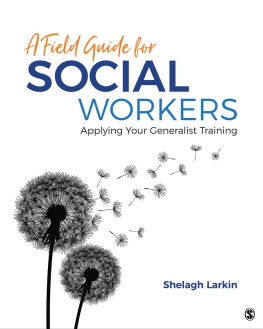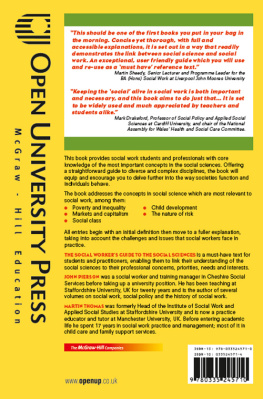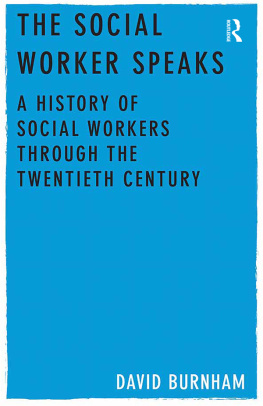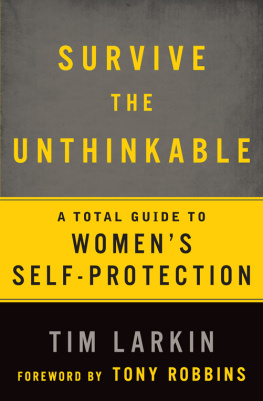Council on Social Work Education (CSWE) 2015 Educational Policy and Accreditation Standards
The Council on Social Work Education (CSWE) uses the Educational Policy and Accreditation Standards (EPAS) for accreditation purposes in Bachelors level (BSW) and Masters level (MSW) social work programs. These standards support academic excellence by establishing a basis for professional competence. They permit programs to design their curriculum, using both traditional and progressive methods and models, by balancing requirements that promote comparable outcomes across all programs.
All social work students are required by the CSWE to develop the 9 Educational Policy Competencies to the extent that students are able to demonstrate the integration and application of the competencies in practice. Students ability to demonstrate the level of competence necessary to enter professional practice is taken as a reflection of their programs success in helping them achieving their goals.
The grid below shows how this book addresses all of the 9 competencies and the component behaviors within each as they are relevant and applied to the field practicum course.
THE 9 COMPETENCIES AND THE COMPONENT BEHAVIORS CHAPTER REFERENCE
Sara Miller McCune founded SAGE Publishing in 1965 to support the dissemination of usable knowledge and educate a global community. SAGE publishes more than 1000 journals and over 800 new books each year, spanning a wide range of subject areas. Our growing selection of library products includes archives, data, case studies and video. SAGE remains majority owned by our founder and after her lifetime will become owned by a charitable trust that secures the companys continued independence.
Los Angeles | London | New Delhi | Singapore | Washington DC | Melbourne
Copyright 2019 by SAGE Publications, Inc.
All rights reserved. No part of this book may be reproduced or utilized in any form or by any means, electronic or mechanical, including photocopying, recording, or by any information storage and retrieval system, without permission in writing from the publisher.
FOR INFORMATION:
SAGE Publications, Inc.
2455 Teller Road
Thousand Oaks, California 91320
E-mail: order@sagepub.com
SAGE Publications Ltd.
1 Olivers Yard
55 City Road
London, EC1Y 1SP
United Kingdom
SAGE Publications India Pvt. Ltd.
B 1/I 1 Mohan Cooperative Industrial Area
Mathura Road, New Delhi 110 044
India
SAGE Publications Asia-Pacific Pte. Ltd.
3 Church Street
#10-04 Samsung Hub
Singapore 049483
Library of Congress Cataloging-in-Publication Data
Names: Larkin, Shelagh J., author.
Title: A field guide for social workers : applying your generalist training / Shelagh J. Larkin, Xavier University.
Description: First Edition. | Thousand Oaks : SAGE Publications, [2018] | Includes bibliographical references and index.
Identifiers: LCCN 2018009060 | ISBN 9781506379241 (pbk. : alk. paper)
Subjects: LCSH: Social serviceFieldwork. | Social work educationUnited States.
Classification: LCC HV11 .L265 2018 | DDC 361.3071/55dc23 LC record available at https://lccn.loc.gov/2018009060
Printed in the United States of America
This book is printed on acid-free paper.
Acquisitions Editor: Joshua Perigo
Editorial Assistant: Alexandra Randall
Production Editor: Tracy Buyan
Copy Editor: Erin Livingston
Typesetter: Hurix Digital
Proofreader: Jeff Bryant
Indexer: Scott Smiley
Cover Designer: Candice Harman
Marketing Manager: Jenna Retana
Introduction
Welcome to field education. Field is the most challenging and rewarding part of your social work education. As a field director for over 20 years, I have walked many students through this process. In fact, one of the things I love most about being a field director is that I get to be a part of an amazing transformation. I cannot adequately describe what it is I witness each year as I watch students go from their first day in field, unsure of what to do or what to expect, to their last day, confidently exiting field, prepared to enter their chosen profession or move on to their advanced education. But what I can say is that it is significant.
As stated earlier, field is both challenging and rewarding. It is challenging in that you will exist in two worlds simultaneously: the world of the classroom and the world of practice in an agency. This is challenging because it is your responsibility not only to navigate successfully between both worlds but also to integrate those worlds, in many cases while moving seamlessly back and forth. Also, the demands of field education can be an overwhelming part of your education. On top of your classroom responsibilities, you will also be expected to work competently with clients in an agency while juggling other responsibilities in your life, such as work and family. Im sure as you got ready to enter field, you asked yourself, Okay, how am I supposed to do this? Field can also be stressful because it is not controlled and doesnt come with a syllabus per se. Thus, you will be exposed to what I like to call the good, the bad, and the ugly. There can be a great many experiences you will need to process. Some you will realize are not necessary for you to attend to, while others will become important learning experiences. So, you will have some rough days. As I tell students, the learning comes in many unexpected ways.
On the other hand, field education is extremely rewarding. I have seen students accomplish amazing things at their field agencies. For instance, students have translated forms into foreign languages to better serve their clients; developed policies for a treatment group that was being run by the agency in a host setting; designed, implemented, and ensured the sustainability of a program they developed; and redone the agencys assessment form to better reflect a strength-based philosophy. I have had students tell me they have been forever and profoundly changed as a result of their work with just one particular client. Furthermore, field is often where students solidify their belief that they have chosen the right profession and are excited to begin their professional life. Finally, field will provide you with invaluable skills that students tell me they would never have gained had they not been in field. At the end of your field experience, you will see that it was more than worth it.






















